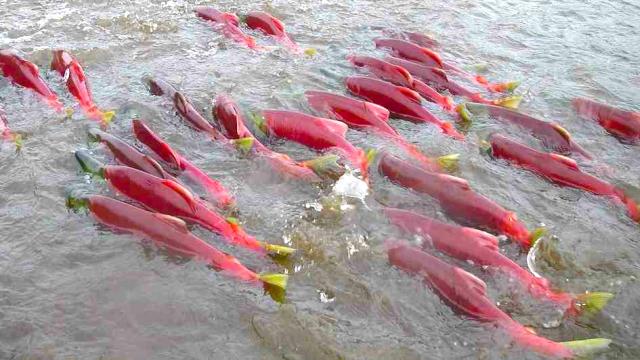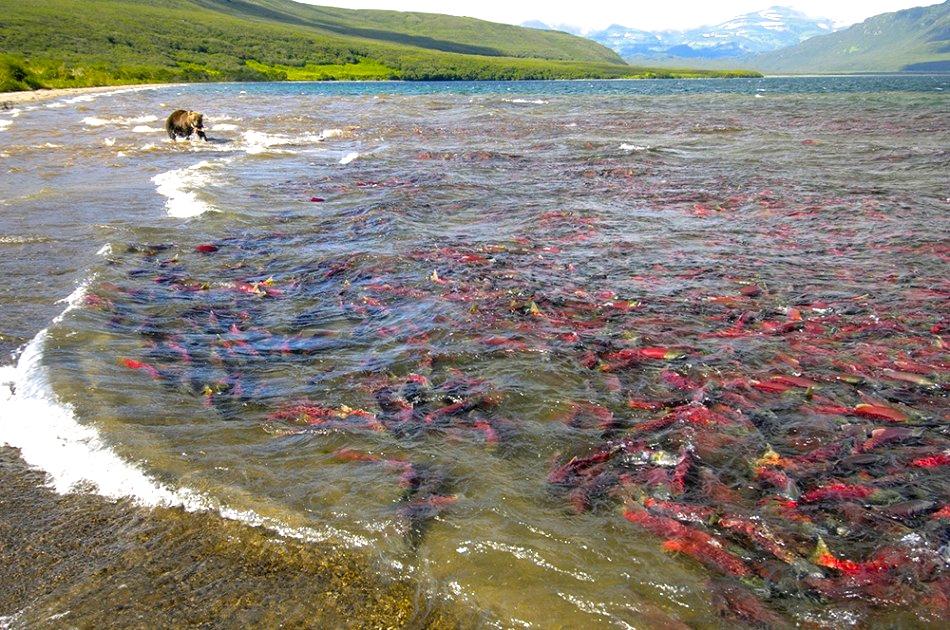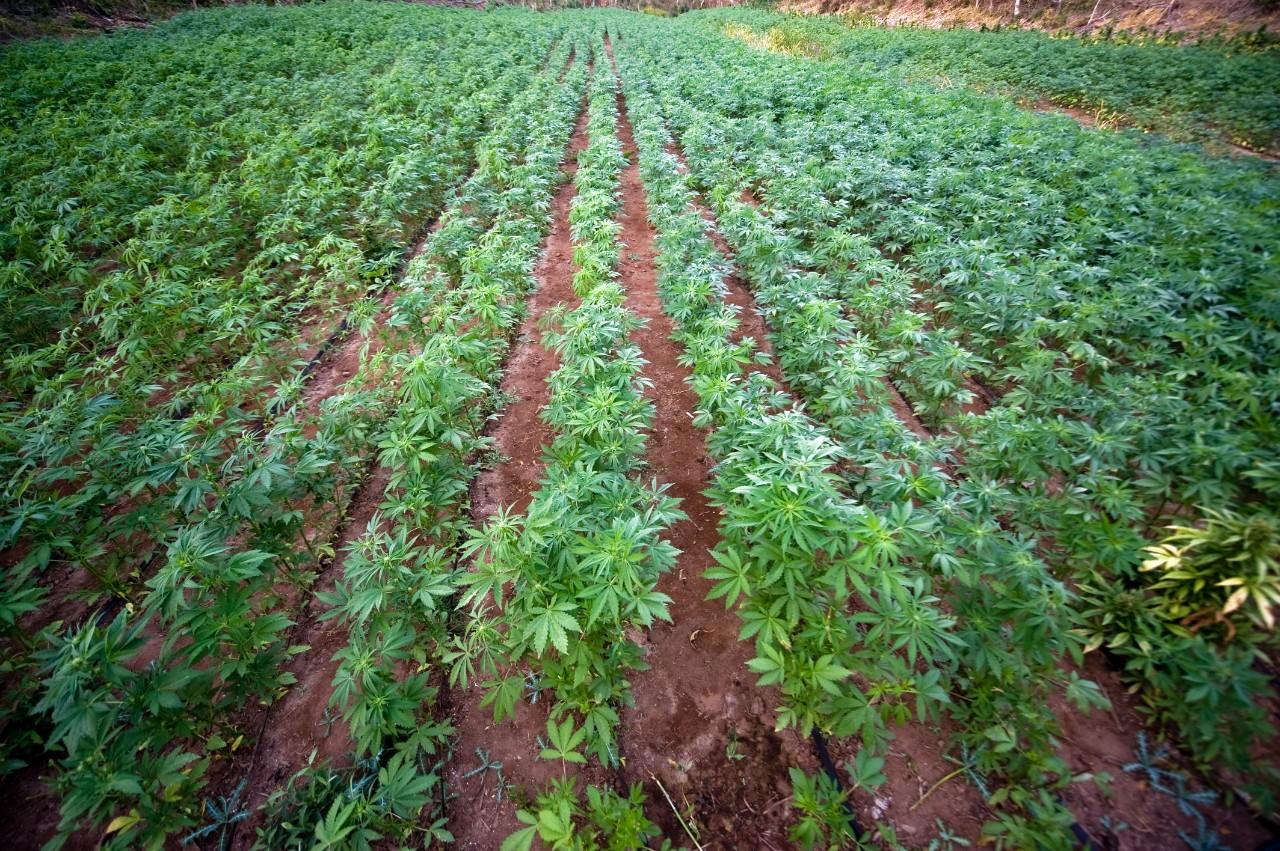
To engage the place means to engage the challenge of building a community that includes each creature and every human neighbor. Passions born of such communion might generate the only moral authority powerful enough to deflect the voracious appetites of a global economy based only on the principles of production and consumption.” − Freeman House, back-to-the-land conservationist and author of Totem Salmon.
MATTOLE RIVER VALLEY, Calif. – The salmon are stuck at the low pools near the mouth of the Mattole River in Humboldt County, California. If you picnic behind the Mattole Salmon Group shed, you can see these glorious fish – there are about 13 of them, swimming languidly, confused. The fish are stranded. They have been trying to make their way to their preferred spawning tributaries upstream but are unable to, because even though it's February and rainy season normally starts around October, the weather is behaving like it's August.
Without rain, the water level won't rise, and so the salmon have spawned here, in water that is too warm, too full of sediment, too close to the ocean, and too shallow. It's unlikely their nests will survive.
This is especially depressing considering that upstream, Sanctuary Forest and other community restoration groups have devoted months – lifetimes! – to improving salmon habitat.
Lately, there has been ample speculation that large-scale marijuana grows are killing the fish in Humboldt County, where toxic chemicals seep into the watershed and growers pump the river dry. But it is too simple – and misleading, in fact – to blame greedy pot farmers for fully damaging the river.
Rather, the legacy of destruction left by from the logging industry, compounded by drought, are the primary reasons why the local ecology is wrecked. By focusing exclusively on marijuana grows, we risk turning our attention away from the real culprit – greed, in the form of short-sighted, reckless practices motivated by profit, which turn a blind eye to the planet that sustains us.

The Extended Dry Season Means the Salmon Will Die
“In 2002, the river stopped flowing for the first time. The river was dry, like a moonscape,” said Tasha McKee, director of Sanctuary Forest, “and all these fish that were upstream just dried up and people were walking in dry leaves. What's causing it? Is there suddenly a lot more human use?
“We went and monitored all 14 of these tributaries, and what we saw is that even where there was no human use – no pot growers, no nothing – the river was drying up. Then we knew that it wasn't enough just to change human use,” she added, “but we'd have to repair the hydrology of the land.
“The biggest difference is the length of the dry season. [If we compare] 1990 to 2000, the population really hadn't changed. Yes, there have been many impacts, but we were still getting by if the dry season is three and a half months long. But when it starts getting to be four, four and a half, five months long – then everything dries up.”
Eight of the past 12 years have been the driest in the Mattole watershed's history. Against one in 1,000 odds, 2008 had the lowest flows ever recorded here, and 2014 looks to be even worse. Historic records show that the current drought could continue for years. The locals aren't afraid of growers: they're afraid of climate change.
And as for the salmon? “Salmon are an indicator species,” explained McKee. “They're going to be the first ones to go. They need cold water to survive, and the only place that's cold enough for them is the headwaters, but this is where it dries up. If you're keeping the watershed healthy enough for the salmon, everyone else is more or less okay. But if you're not, then a lot of other species will be impacted.”

Blame the Logging Companies That Ravaged the Area and Left
“The majority of the landscape here is this young forest, 40 years old, which is drinking up most of the water, and the pot-growers are using up maybe 10% [of it],” explained Michael Evenson, President of the Mattole Salmon Group. “But it's an easy 10 percent for regulators to go after.
“How do you go after a timber company that's long gone – because what they did has an impact today that they didn't foresee?”
The tallest conifers in the world – Douglas firs and redwoods, each living to be thousands of years old – used to reign over the Mattole River Valley. Between 1946 and 1980, 86% of the old-growth forest here was chopped down. Logging roads eroded the land, and excess sediment spilled into the river, devastating the watershed and natural habitat.
In 1987, the Texas-based corporation Maxxam executed a hostile takeover of the local Pacific Lumber Company. “The objective was to gut Pacific Lumber and take everything they could out of its assets: the remaining ancient forest. [The objective was to] liquidate the forest,” explained local activist Ellen Taylor.
Maxxam's then-CEO, Charles Hurwitz, arrived on the Coast to lay out his “new golden rule”: HE WHO HAS THE GOLD RULES. The corporation filed for bankruptcy in 2007 and left the area, but not before succeeding in pillaging much of Humboldt's remaining old-growth.
Today, logging in the Mattole Valley is a shadow of what it once was. There isn't much left to chop down.
Some logging companies maintained that you could treat trees like corn: replant the ones cut down and you'll have a perfectly healthy forest in 50 years. The Z'berg-Nejedly Forest Practice Act of 1973 mandated that loggers replant enough trees to cover over a logged area. Because the ancient trees were gigantic – Douglas firs can grow to be 15 feet in diameter and 350 feet tall – companies would plant 10 trees for every one they cut down.
Local environmentalists knew this kind of “solution” would not be so simple: trees are, in fact, nothing like corn. But today, Humboldt must deal with the consequences – because so many trees were planted in such a short time that the new-growth forest is drinking most of the local water supply.
As a result, community-based restoration groups like Sanctuary Forest have stepped in to repair the damage that logging companies left behind.
“Salmon is a totem species for the Northwest – salmon brings together fishermen, farmers, hippies, pot-growers, environmentalists,” McKee explained. “Everybody agrees that if we don't have salmon anymore, it'll feel like we were really a failure in terms of how we stewarded the land.”
Sanctuary Forest is now collaborating with the Bureau of Land Management in a pilot project to build emergency coho salmon habitat near the headwaters of the Mattole. The goal of the project is to improve complexity within the tributary, creating deep pools of water which raise the water table and give the salmon a calm place to spawn. That way, even if the stream stops flowing, if the pools are deep enough, there will be resilience to drought and the salmon can survive here.
McKee says that Sanctuary Forest would like to continue the project downstream. That way, if the fish can't make it upstream (and right now, they can't), they'll have an emergency place to spawn. But the organization is having trouble getting permission to continue its work.
McKee told me that “the Department of Fish and Wildlife doesn't want to do [the project] – they're so afraid of liability that they don't want to do anything that will make a difference. We're hamstrung by the very agencies that are here to protect things.”
And this is a shame, because the project, begun in 2012, has been overwhelmingly successful. Half of last year's coho salmon spawned here – and while downriver is drying up, Baker Creek is still holding water despite California's severe drought.
McKee studied beavers after learning that beaver and coho salmon co-evolved – the healthiest coho populations live upstream from beaver dams – so Sanctuary Forest built a series of low, long dams in the creek that mimic beaver dams. “The idea is to be humble, to do a little bit, and see how the fish respond,” said McKee.
For the Mattole Salmon Group's Michael Evenson, nature is the best teacher. “We pray and chant for gentle rain soon,” he said.
3 WAYS TO SHOW YOUR SUPPORT
- Log in to post comments












